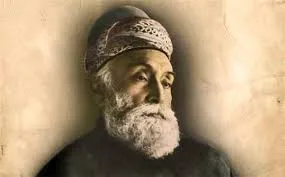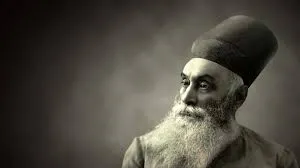Introduction
Jamshedji Nusserwanji Tata, often called the “Father of Indian Industry,” was a groundbreaking entrepreneur who played a key role in kick starting India’s industrial revolution. Born in 1839 in Navsari, Gujarat, Tata’s journey from a young boy in a Parsi family to the founder of the Tata Group is a compelling tale of ambition, innovation, and resilience. His vision and determination didn’t just build a business empire; they paved the way for India’s future as an industrial powerhouse.

Early Life and Education
Jamshedji Tata was born into a family of Parsi priests on March 3, 1839. From a young age, he exhibited a keen interest in business and entrepreneurship. He pursued his education at Elphinstone College in Bombay (now Mumbai), where he graduated with a degree. His education provided him with the knowledge and confidence to embark on a career in business, defying traditional expectations.
Initial Ventures
After completing his education, Jamshedji joined his father’s trading firm, Nusserwanji Tata & Co. His work involved extensive travel, which exposed him to various cultures, technologies, and business practices across the globe. These experiences fueled his desire to bring industrial and technological advancements to India.
In 1868, with a capital of ₹21,000, Jamshedji Tata established a trading company named Tata & Sons. His initial ventures included trading cotton, tea, and other goods. His keen business acumen and innovative strategies soon led to success, allowing him to expand his horizons and venture into industrial enterprises.
Founding the Tata Group
Jamshedji Tata’s vision extended beyond trading. He dreamt of a self-reliant India with its own industrial base. This vision led him to establish several pioneering ventures that laid the foundation for the Tata Group.
1. Tata Steel:
One of Tata’s most ambitious projects was the establishment of Tata Iron and Steel Company (now Tata Steel) in 1907. He envisioned an India that could produce its own steel, reducing dependence on British imports. Despite facing skepticism and numerous challenges, including financial constraints and opposition from British authorities, Tata’s determination paid off. Tata Steel became India’s first integrated steel plant, marking the beginning of India’s industrialization.
2. Tata Power:
Recognizing the importance of energy for industrial growth, Tata founded the Tata Hydroelectric Power Supply Company (now Tata Power) in 1910. His goal was to provide affordable and reliable electricity to Indian households and industries. This venture played a crucial role in powering India’s cities and fostering economic development.
3. Indian Institute of Science (IISc):
Jamshedji Tata was a firm believer in the power of education and research. He proposed the creation of the Indian Institute of Science (IISc) in Bangalore (now Bengaluru) to promote scientific research and higher education in India. Despite initial resistance, his persistent efforts and endowment led to the establishment of IISc in 1909. Today, IISc is one of India’s premier institutions for scientific research and education.
Overcoming Challenges
Jamshedji Tata’s journey was fraught with challenges. He faced significant opposition from British colonial authorities, who were wary of his ambitious projects. Additionally, the lack of infrastructure and skilled workforce in the nascent Indian industrial sector posed considerable hurdles. Despite these obstacles, Tata’s unwavering determination, innovative strategies, and ethical business practices ensured the success of his ventures.
Legacy and Impact
Jamshedji Tata’s legacy extends far beyond the companies he founded. His visionary ideas and commitment to ethical business practices set a benchmark for future generations of Indian entrepreneurs. The Tata Group, under the stewardship of his successors, continues to uphold his values of integrity, excellence, and social responsibility.
Today, the Tata Group operates in over 100 countries, encompassing diverse sectors such as steel, automotive, telecommunications, and information technology. Tata’s emphasis on self-reliance, education, and technological advancement laid the foundation for India’s journey towards becoming a global economic powerhouse.
Jamshedji Tata: The Visionary Behind India’s Industrial Revolution
Founding the Tata Group
In 1868, with a modest capital of ₹21,000, Jamshedji Tata founded a trading company, Tata & Sons. This was the beginning of what would become the Tata Group, a conglomerate that would eventually span multiple industries and influence India’s economy profoundly.

Jamshedji Tata’s Visionary Projects
Tata Steel
- One of Tata’s most ambitious projects was the establishment of Tata Iron and Steel Company (now Tata Steel) in 1907.
- This marked the beginning of India’s self-reliance in steel production, reducing dependence on British imports.
Tata Power
- In 1910, Jamshedji founded the Tata Hydroelectric Power Supply Company (now Tata Power) to provide affordable electricity, promoting industrial growth and urban development.
Indian Institute of Science (IISc)
He was a strong advocate for education and research. He proposed and funded the establishment of the Indian Institute of Science in Bangalore (now Bengaluru) in 1909, which remains one of India’s premier research institutions.
Jamshedji Tata’s Family Tree
Jamshedji Tata married Hirabai Daboo and had two sons, Dorabji Tata and Ratanji Tata, both of whom played crucial roles in the expansion of the Tata Group. The Tata family continued Jamshedji’s legacy, leading the conglomerate to greater heights.
Jamshedji Tata’s Philanthropy and Donations
Jamshedji Tata was not only a pioneering industrialist but also a philanthropist. He believed in the power of education and healthcare to transform society. His philanthropic initiatives include funding for institutions like the Indian Institute of Science and various hospitals, which laid the groundwork for the Tata Group’s enduring commitment to social responsibility.
Famous Quotes by Jamshedji Tata
- “In a free enterprise, the community is not just another stakeholder in business, but is in fact the very purpose of its existence.”
- “No success or achievement in material terms is worthwhile unless it serves the needs or interests of the country and its people.”
Jamshedji Tata’s Son
His elder son, Sir Dorabji Tata, carried forward his father’s legacy. Dorabji played a key role in the establishment of Tata Steel and also founded the Sir Dorabji Tata Trust in 1932, which remains one of India’s oldest and largest philanthropic organizations.
Jamshedji Tata and Ratan Tata Relationship
Ratan Tata, one of the most prominent figures in the Tata Group’s history, is a direct descendant of Jamshedji Tata’s brother. Ratan Tata’s leadership modernized and globalized the Tata Group, furthering Jamshedji’s vision of making a significant impact on the global stage.
Celebrating Jamshedji Tata’s Birthday
Jamshedji Tata’s birthday, March 3rd, is celebrated as Founder’s Day across the Tata Group. This day is marked by various events and activities honoring his contributions and reaffirming the values he instilled in the company.
Jamshedji Tata’s Contributions to Education: School of Disaster Studies
Continuing his legacy of supporting education and research, the Tata Institute of Social Sciences (TISS) established the Jamsetji Tata School of Disaster Studies. This school focuses on disaster management and research, reflecting Tata’s commitment to societal well-being and resilience.
Conclusion
Jamshedji Tata’s life is a testament to the power of vision, perseverance, and ethical leadership. As the architect of modern industrial India, he transformed the nation’s economic landscape and inspired generations of entrepreneurs. His legacy continues to thrive through the Tata Group’s commitment to innovation, sustainability, and social welfare, embodying his enduring spirit and unwavering dedication to India’s progress.
FAQs about Jamshedji Tata
Who was Jamshedji Tata?
- Jamshedji Nusserwanji Tata, often hailed as the “Father of Indian Industry,” was a pioneering entrepreneur who founded the Tata Group, one of India’s largest and most respected business conglomerates. He is known for his significant contributions to industrializing India.
When was Jamshedji Tata born?
- He was born on March 3, 1839, in Navsari, Gujarat, India.
What was Jamshedji Tata’s educational background?
- He graduated from Elphinstone College in Bombay (now Mumbai) in 1858. His education and travels exposed him to global business practices and technological advancements, which inspired his vision for industrializing India.
What were Jamshedji Tata’s major contributions to Indian industry?
- His major contributions include founding Tata Steel, Tata Power, and the Indian Institute of Science (IISc). These ventures were instrumental in reducing India’s dependence on British imports and promoting self-reliance in industrial production.
What is Tata Steel?
- Tata Steel, founded in 1907, was one of tata’s most ambitious projects. It marked the beginning of India’s self-reliance in steel production and became a cornerstone of the Tata Group’s industrial empire.
What is Tata Power?
- Tata Power, established in 1910, was Tata’s initiative to provide affordable and reliable electricity, promoting industrial growth and urban development in India.
What is the Indian Institute of Science (IISc)?
- The Indian Institute of Science (IISc), established in Bangalore (now Bengaluru) in 1909, was Jamshedji Tata’s vision to promote scientific research and higher education in India. It remains one of India’s premier research institutions.
What philanthropic activities was Jamshedji Tata involved in?
- Jamshedji Tata was deeply committed to philanthropy. His initiatives included funding the Indian Institute of Science and various hospitals. His legacy of philanthropy continues through the Tata Group’s extensive corporate social responsibility (CSR) activities.
What are some famous quotes by Jamshedji Tata?
- – “In a free enterprise, the community is not just another stakeholder in business, but is in fact the very purpose of its existence.”
- – “No success or achievement in material terms is worthwhile unless it serves the needs or interests of the country and its people.”
Who were Jamshedji Tata’s children?
- Jamshedji Tata had two sons, Dorabji Tata and Ratanji Tata, both of whom played crucial roles in expanding the Tata Group.
What is the relationship between Jamshedji Tata and Ratan Tata?
- Ratan Tata, one of the most prominent figures in the Tata Group’s history, is a direct descendant of Jamshedji Tata’s brother. Under Ratan Tata’s leadership, the Tata Group has modernized and globalized, furthering Jamshedji Tata’s vision.
What Impact of Jamshedji Tata on Our Lives: Lessons We Can Learn!
Jamshedji Tata’s legacy profoundly impacts our lives through his visionary thinking, commitment to education, and pioneering contributions to industry and philanthropy. As the “Father of Indian Industry,” he founded Tata Steel, Tata Power, and the Indian Institute of Science, establishing a foundation for India’s industrial and educational growth. His ethical leadership and innovative spirit set a high standard for corporate social responsibility, emphasizing the importance of giving back to the community. From his life, we learn invaluable lessons in resilience, perseverance, ethical business practices, and the transformative power of investing in education and innovation. Jamshedji Tata’s enduring influence continues to inspire and guide future generations towards sustainable and inclusive progress.
Looking for a daily dose of inspiration? Visit www.everydaynewday.com! We bring you powerful stories of motivational people from all walks of life. Whether you’re seeking to kickstart your day with positivity or need a boost to chase your dreams, we’ve got you covered. Join us and get inspired every day!”






































